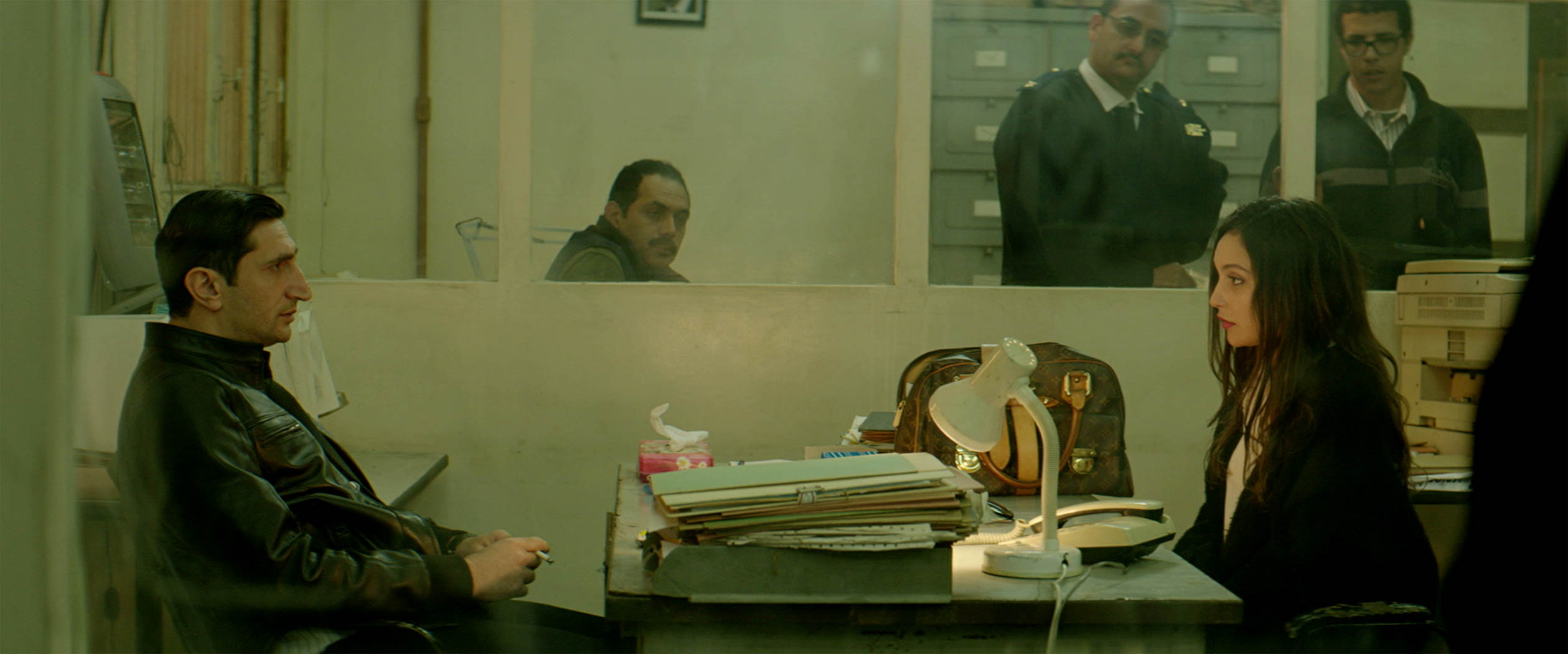 Back to selection
Back to selection
Sundance Notes: The Nile Hilton Incident
 Fares Fares and Hania Amar in Tarik Saleh’s The Nile Hilton Incident
Fares Fares and Hania Amar in Tarik Saleh’s The Nile Hilton Incident Twice in a row the first film I’ve seen at Sundance is so brilliant, so accomplished that I start Sundance on a mountain high — and it’s not the thin air.
I had to miss 2016 Sundance, but two years ago it was Tom Hardy in Steven Knight’s Locke, a tour de force of a one-hander that’s nonetheless a nail-biter — Hardy in close-up the entire film, speeding through the night in his car, his life crumbling in real time with each harrowing Bluetooth call. You learn a lot about concrete pours and the consequences of poor choices. But I digress.
This year my Sundance virginity was taken by Tarik Saleh’s The Nile Hilton Incident in the World Cinema Dramatic Competition. A Sweden-Germany-Denmark co-production set in Cairo and filmed in Morocco, it throws a frayed moral high-wire above a bottomless pit of official corruption and forces its flawed hero — a corrupt Cairo police colonel with flickerings of conscience — to cross, one perilous step at a time. Will he slip to his death? Or worse?
The Nile Hilton Incident darkly unfolds like the very best of Graham Greene — did I mention Carol Reed’s The Third Man is my all-time favorite film? — but goes Greene one better. Greene’s anti-hero protagonists were projections of himself, existentially conflicted mid-century Europeans, who found themselves afloat in landscapes of moral compromise set in “remote” or “Third World” corners of the globe. (Vienna the exception, at least the Third World part.)
In contrast to the English Greene, Director Tarik Saleh, a Swedish journalist, animator, and film director, is of Egyptian descent. (He emerged as a Swedish graffiti artist in the 1990s.) The Nile Hilton Incident, which he also wrote, is not in English but instead Arabic and Dinka (language of Sudan). The anti-hero, Colonel Noredin (Swedish-Lebanese actor Fares Fares), is not some far-from-home European or American but an Egyptian, a native Cairene.
The extraordinary cast, Arab and Sudanese, inhabit their roles like a second skin; you constantly remind yourself they’re acting. Not a false or contrived note in 106 minutes. Uncoated lenses — the latest fad among digital cinematographers — cause every light source to flare and desaturate the frame, rendering Cairo dustier, more washed out. Every window or windshield through which the camera peers is scratched and smudged. Every interior worn and in disrepair, tinted cold by sickly fluorescent light. Starting with Noredin’s police HQ.
Noredin’s internal conflicts aren’t rooted in religious ideology like those of a Greene protagonist (Greene’s Catholicism). That he is routinely corrupt like everyone else is established from the outset. Rather, Noredin’s arc toward redemption, such as it is, stems from what’s left of his human bona fides, a budding recognition of injustice, the rising cost of repeatedly selling his soul.
Some will diminish this film as a noir policier with a couple of murders thrown in. That the sound design is consistently pointed, subtle and intense should clue in the audience otherwise. Beyond framing the action, every shot depicts some form of background decay, abuse, neglect, exploitation, subjugation. This is a deeply angry film, a tendentious entertainment in the mold of Pontecorvo and Costa-Gavras. Pull back from the storyline and the larger frame is Cairo of 2011, with Mubarak in power. The bad guy is, what else, a real estate developer and Mubarak crony who erects condos for the moneyed elite.
The Nile Hilton Incident does nothing less than present an evidentiary case for why Tahrir Square exploded in fury in early 2011, which is the exact note the film ends on. That the telling is so masterful — Tarik Saleh is confirmed as a major Cinema talent — sets a high bar for the rest of my Sundance.
